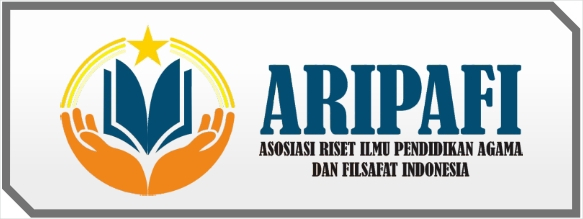Etika Profesi sebagai Landasan Moral dalam Penerapan Kode Etik Guru Pendidikan Agama Kristen
DOI:
https://doi.org/10.55606/sinarkasih.v3i1.452Keywords:
Professional Ethics, Code of Ethics, Christian Religious Education Teacher, Morality, Religious Education, Christian ValuesAbstract
Christian religious education plays a crucial role in shaping the character and morals of the younger generation, where Christian Religious Education Teachers (PAK) bear a significant responsibility in instilling Christian values. This study aims to investigate the role of professional ethics in the implementation of the PAK teacher's code of ethics and how it can enhance the quality of Christian religious education, particularly in building positive teacher-student relationships. The methodology employed in this study is qualitative analysis with a hermeneutical approach, examining the text of the code of ethics and professional ethics based on Christian values. The findings of the study indicate that professional ethics is not merely an additional moral guideline, but a deeper foundation for understanding and applying the code of ethics in various situations. Professional ethics assists PAK teachers in maintaining integrity, professional honesty, and creating a conducive learning environment. Furthermore, this study discovered that the integration of professional ethics and the code of ethics can enhance the accountability of PAK teachers and overall improve the quality of education. The conclusion of this study affirms that the application of professional ethics grounded in Christian values is paramount for PAK teachers in fulfilling their duties, enabling them to shape a younger generation with noble character and a Pancasila spirit. This study contributes to the development of Christian religious education in Indonesia by emphasizing the importance of ethics in the teaching profession, creating a positive learning environment that supports students' spiritual growth.
References
Darmawan, D. (2018). Membangun hubungan guru-siswa yang positif: Sebuah studi kasus di sekolah dasar. Jurnal Pendidikan Dasar, 1(2), 1-10.
Hana, Y. A., Arifianto, & Triposa, R. (2022). Kode etik dan profesionalitas guru pendidikan agama Kristen: Upaya meningkatkan karakter anak. IMMANUEL: Jurnal Teologi dan Pendidikan Kristen, 3(2), 134-149. https://doi.org/10.46305/im.v3i2.132
Naibaho, D. (2024). Kode etik dan profesionalisme guru pendidikan agama Kristen.
Naibaho, D., & Marpaung, A. K. (2023). Pendidikan agama Kristen memiliki peran sebagai guru profesional yang memiliki kode etik guru. Jurnal Ilmiah Multidisiplin, 1(2), 43-50. https://doi.org/10.62017/merdeka
Prihanto, J., Pakpahan, D. F., & Tarigan, D. P. (2022). Peran kode etik untuk meningkatkan profesionalisme guru pendidikan agama Kristen. Journal of Industrial Engineering & Management Research, 3(3). https://doi.org/10.7777/jiemar
Soedjatmiko, A. (2009). Pendidikan agama Kristen: Sebuah perspektif teologi dan pedagogi. BPK Gunung Mulia.
Suparman, A. (2016). Nilai-nilai Kristiani dalam pendidikan: Sebuah refleksi. Jurnal Pendidikan Kristen, 1(1), 1-10.
Downloads
Published
How to Cite
Issue
Section
License
Copyright (c) 2024 Sinar Kasih: Jurnal Pendidikan Agama dan Filsafat

This work is licensed under a Creative Commons Attribution-ShareAlike 4.0 International License.


















